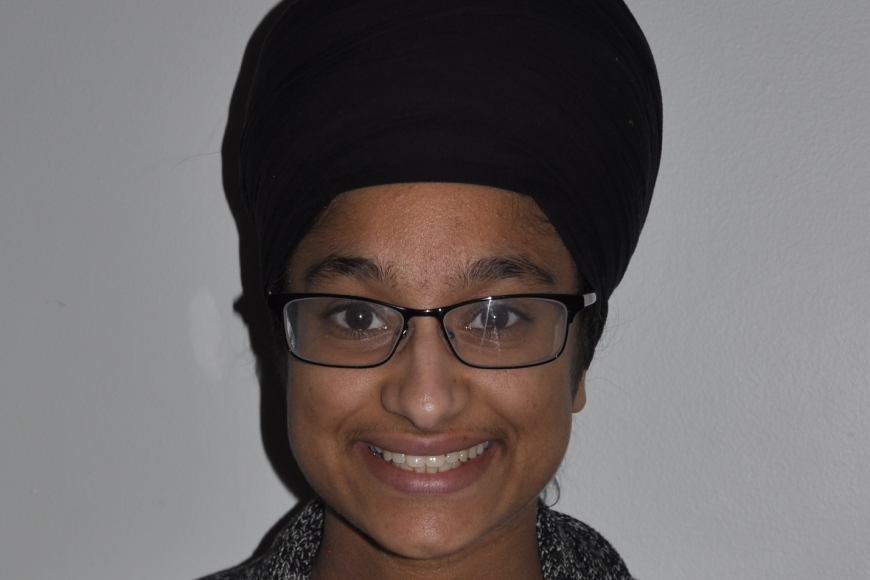
My first four months as a Therapy and Office Assistant at DesLauriers Chiropractic Group Inc have been a remarkable experience. My job is the perfect blend of various job types for a co-op student seeking to know what type of a career they would be successful in. Along with the typical receptionist duty, I play a role in examining and treating patients in terms of performing computerized spinal scans and laser therapy. I have also gotten a glimpse of the inner workings of running a business and have gained experience in organizing and marketing office events. By the end of my year-long placement, I will have obtained various other experiences, including training the next co-op student at the office!
About DesLauriers Chiropractic Group Inc. (DCG Inc.)
DCG Inc., based in White Rock, is a chiropractic clinic that practices wellness care in a positive atmosphere that is inviting to families and individuals of all ages. The focus is on treating the root cause of the problem rather than just the symptoms, such as emotional and physical stress. The office encourages the chiropractic lifestyle which includes realignment of the spine, regular exercise, proper nutrition, good posture and stress management. Patients can also borrow books and buy supplements or equipment that support this lifestyle.
Dealing with Priorities
As a staff member, one of the most important things that I have learned is the importance of priorities at the office:
- People
- Phone
- Paper
Let’s say I am working on a gift basket for the annual Christmas food drive and contest, I have a ton of filing to do along with various other office-related tasks, and then three patients walk in, another two patients are ready for payment and booking, and both phones ring. What do I take care of first? Priorities, priorities, priorities!
When a patient comes in, I always greet them with a smile and by using their name. Because I need to help the people that are in waiting in line first, I put any phone calls on hold or get the name and number of the caller so I can call them back. It is important that the doctors stay on time with their schedules so that patients are not kept waiting for too long. To ensure this, I always need to make sure the next patient on the schedule is put into a treatment room and is ready to be seen by the doctor. When this is done, I can take payments and book the next appointments for the patients who are waiting in line. If a patient’s spinal scan or laser therapy is due to be done, then I need to make sure to do that as well. When all of this is done, I can finally move on to getting back to those phone calls. Once the front desk is cleared, the treatment rooms are full with patients, and no one needs to be scanned or have laser therapy done, I can then continue working on my ‘paper’ tasks, which includes anything that does not involve interacting with patients, such as typing X-ray reports or checking the inventory. Prioritization is very important because once you lose track of your priorities, it is easy to fall behind in your work. This knowledge can be carried over to other jobs by knowing that anything that involves dealing directly with a patient or client is of highest priority, and anything else comes after.
My Experience
All of this can be stressful to deal with at times, but I do also enjoy the thrill of keeping busy. I am getting better and better at this through practice and by learning through mistakes. It really helps that the training staff and my supervisors are extremely understanding and constantly provide feedback and tips. Compared to the beginning of my work term, I now find it much easier to successfully multitask in order of priority, as well as deal with people and problems with professionalism and confidence.
One of the things that I enjoy most is having friendly conversations with the patients and getting to know them. I find that a chiropractic office has a very uplifting and welcoming environment. Some chiropractic patients come in almost every week or even a few times a week, so it is easy to get to know them. However, if interacting with patients becomes a distraction, then I must remember to be friendly with them but to keep within my limits, as I often have several tasks to complete.
Here are some tips that I have gathered from my training at the office from asking questions, from interacting with staff members and supervisors, and from my own experiences:
- As my supervisor always says, be an “air traffic controller” or a “quarterback” and direct patients in the right direction. Take control of the situation at hand, while still being kind and polite towards patients.
- Always show confidence while interacting with patients and visitors because you may be their first impression of the office. If they perceive confidence within staff members, then they may develop confidence in the doctors as well.
- Using eye contact, good posture, and a pleasant tone of voice is very important while speaking to patients.
- Always look ahead at the day’s schedule to see who is coming in and what preparations need to be made. Being organized ahead of time is the key to avoiding stressful situations.
- Efficiency in work is crucial – always try to complete tasks in the most efficient and productive manner.
- Always sympathize with patients – if they are in a troubling or unhappy situation, show them that you are concerned and that you are there to support them.
You have heard it before and you can hear it again: Co-op has been an invaluable experience for me because I have learned lifelong skills that will be useful in most jobs. I feel that my communication skills are improving day by day, and I now have a greater appreciation for being organized and ready for whatever situation that I may come across. I am extremely grateful for the opportunity to work with and receive one-on-one training from experienced professionals, and can’t wait to see what comes my way in the next 8 months of my placement!
Beyond the Blog
-
Learn more about DesLauriers Chiropractic Group Inc.!















